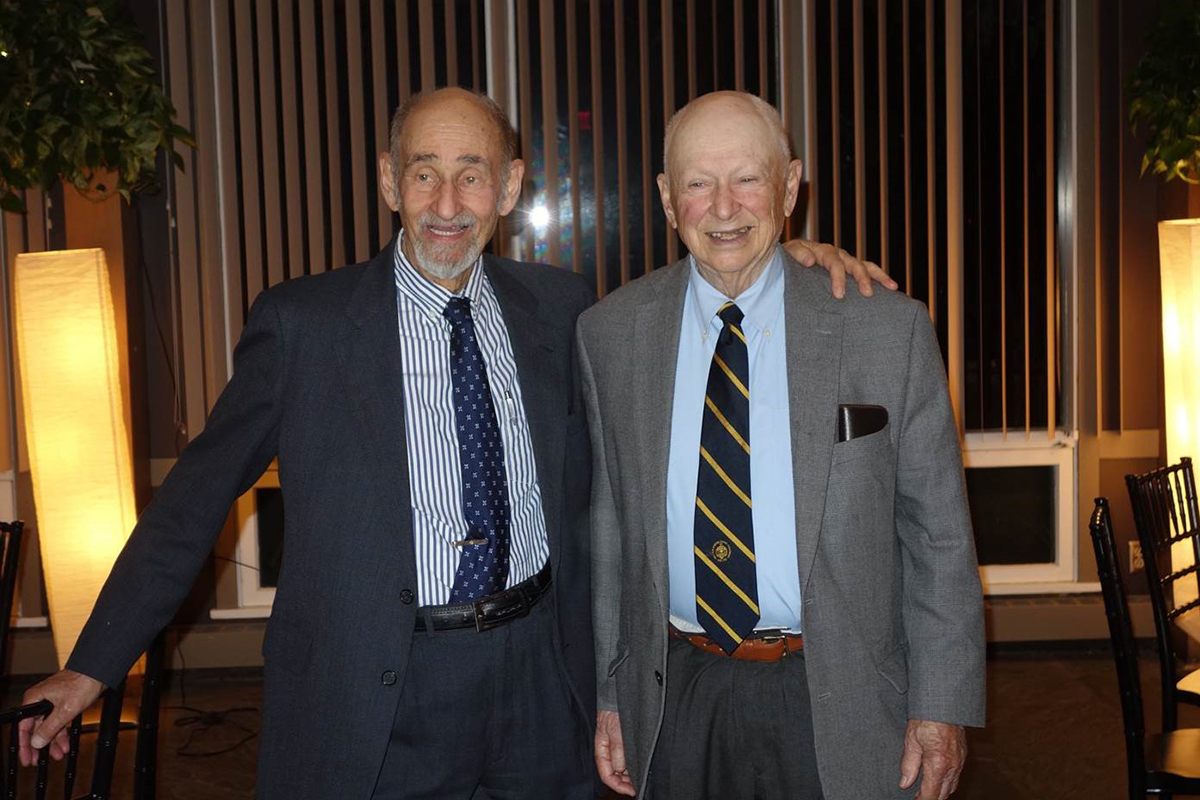Seymour 'Sy' Smidt, expert in corporate finance, dies at 88
By Susan Kelley

Seymour “Sy” Smidt, the Nicholas H. Noyes Professor Emeritus of Economics and Finance, died May 16 at Hospicare in Ithaca. He was 88.
Joining Cornell’s faculty in 1956, Smidt was an internationally recognized expert in corporate finance, managerial economics and market microstructure. He wrote or co-wrote 45 books and articles, including textbooks on capital budgeting, corporate finance and statistical decision theory. He also conducted research on the stock market, commodity futures markets and electric-rate regulation.
Smidt was associate director of the Securities and Exchange Commission’s Institutional Investor Study. During 1993-94, he served as founding dean of the School of Business at Koç University in Istanbul, Turkey.
He is best known as co-author of “The Capital Budgeting Decision,” co-written with Harold Bierman Jr., distinguished professor of management emeritus and professor emeritus of finance.
The two scholars met in 1956 as assistant professors with offices on the top floor of McGraw Hall. The book did not come easily, Bierman remembered.
“Sy did not approve of my naive, faulty reasoning. I could not understand his written logical and sophisticated reasoning,” Bierman said. “On the other hand, there was always good humor and respect. The foundation of a lifelong friendship was formed. If there is life after death, then Sy is being rewarded for a life lived well.”
“The Capital Budgeting Decision,” now in its ninth edition, has been translated into nine languages. “This book truly defined and shaped the field of investments and capital budgeting,” said Mark Nelson, the Anne and Elmer Lindseth Dean of the Samuel Curtis Johnson Graduate School of Management. “Sy was a longtime and beloved member of the Johnson and Cornell communities, and his influence and impact will live on.”
In the mid-1970s, Robert J. Swieringa, professor emeritus of accounting and the Anne and Elmer Lindseth Dean Emeritus of Johnson, remembers several faculty members would often gather for lunch in Malott Hall. Smidt was an important member of this gathering, which included faculty members with backgrounds from economics to finance, behavioral science, accounting, marketing and operations. Discussions often were about their research in process, including puzzles or challenges they were experiencing, Swieringa said. “Sy’s diverse background and inquisitive nature reflected interests that were developed and nurtured at the University of Chicago,” he said.
Smidt earned a bachelor’s degree in liberal arts, and master’s and doctoral degrees in economics, all from the University of Chicago. After two years in the U.S. Army, he joined Cornell’s faculty as an assistant professor.
He was promoted to associate professor in 1959, to professor in 1965 and became the Nicholas H. Noyes Professor of Economics and Finance in 1978. Smidt retired from Cornell in 2005.
He was always intellectually curious, passionate about his research and generous in his willingness to help others with their research efforts, said Maureen O’Hara, the Robert W. Purcell Professor of Finance. When O’Hara was a new faculty member at Johnson, Smidt encouraged her to research the structure of securities markets, an area he and a few others had pioneered. “That great advice helped me build a career,” she said. “He remained throughout his long career a resource for his colleagues, a mentor for his doctoral students and a great friend for the Johnson community.”
One of Smidt’s many doctoral advisees, Scott Stewart, MBA ’83, Ph.D. 85, a clinical professor of finance and accounting at Johnson, remembers Smidt as a talented empiricist with a keen interest in technology and an appreciation for the value of hard work.
When Stewart was facing the prospect of entering a large amount of data by hand for his dissertation, Smidt suggested designing a computer program that would check for errors. Stewart once expressed that the work was tedious, he said. “After listening politely, Sy said, ‘You know, there’s a lot of benefit in getting dirty with the data,’ which is knowing in excruciating detail where that information is coming from and how it’s put together,” Stewart recalled.
Smidt was instrumental in maintaining and building Johnson’s culture, which encourages professors to promote very high standards and give students strong support, Stewart said. “He helped me hone my research techniques and showed me new ways to think through the theoretical side of a problem. … The opportunity to study with Sy Smidt was a great gift.”
A description of Smidt’s contributions at Johnson can be found in a Sage Hall seminar room named in his honor by former students, colleagues and friends. The plaque there reads, in part, “Seymour (Sy) Smidt … whose dedication and achievements for nearly a half-century of service to the Johnson School have inspired students, faculty, colleagues, and friends.”
Smidt is survived by a son and a daughter.
A memorial service was held May 19 at Temple Beth El in Ithaca. Contributions in Smidt’s memory can be made to the charity of one’s choice.
Media Contact
Get Cornell news delivered right to your inbox.
Subscribe